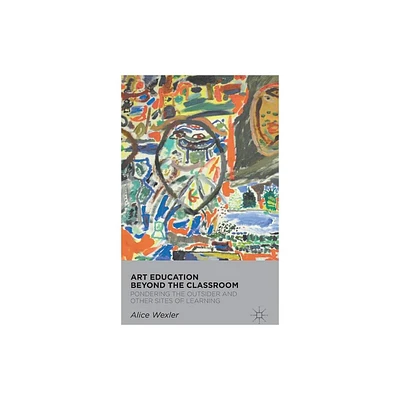Home
F.D.E. Schleiermacher's Outlines of the Art Education: A Translation & Discussion
Loading Inventory...
Barnes and Noble
F.D.E. Schleiermacher's Outlines of the Art Education: A Translation & Discussion
Current price: $124.95


Barnes and Noble
F.D.E. Schleiermacher's Outlines of the Art Education: A Translation & Discussion
Current price: $124.95
Loading Inventory...
Size: Hardcover
*Product Information may vary - to confirm product availability, pricing, and additional information please contact Barnes and Noble
"One must assume we are all familiar with what is commonly called ‘education.’" This is how Schleiermacher begins his famous 1826 lecture on the
Art of Education
. But in proceeding further—and unlike Rousseau or Locke before him—Schleiermacher carefully avoids assuming that education is primarily about a return to nature or about "soundness" of mind and body. Education is instead an ethical and political undertaking and a pragmatic art whose ultimate object and morality has differed greatly over time. It is exercised as a form of practical influence of the older generation on the younger: "A significant part of the activity of the older generation extends toward the younger," Schleiermacher reasons, and it "is more complete and perfect the more it is governed by an idea of what
should
happen—the more it has an exemplar to guide its action—the more it is an
art
.
"
This book offers these and other insights on education—long canonical in Central and Northern Europe—for the first time to an English audience. It also provides five chapters by scholars in education and its history that discuss various aspects of Schleiermacher’s lecture.
Art of Education
. But in proceeding further—and unlike Rousseau or Locke before him—Schleiermacher carefully avoids assuming that education is primarily about a return to nature or about "soundness" of mind and body. Education is instead an ethical and political undertaking and a pragmatic art whose ultimate object and morality has differed greatly over time. It is exercised as a form of practical influence of the older generation on the younger: "A significant part of the activity of the older generation extends toward the younger," Schleiermacher reasons, and it "is more complete and perfect the more it is governed by an idea of what
should
happen—the more it has an exemplar to guide its action—the more it is an
art
.
"
This book offers these and other insights on education—long canonical in Central and Northern Europe—for the first time to an English audience. It also provides five chapters by scholars in education and its history that discuss various aspects of Schleiermacher’s lecture.


















